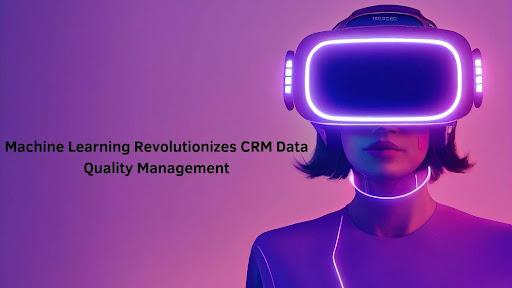In this rapidly evolving digital landscape, where customer data drives business success, machine learning is revolutionizing how organizations manage their CRM systems. A comprehensive research study by Sruthi Potru, a data scientist from the pharmaceutical industry, reveals groundbreaking insights into automated data cleansing and enrichment methodologies that are transforming how businesses handle and optimize their customer data.
The Dawn of Intelligent Data Management
Traditional CRM systems have long struggled with data inconsistencies, duplications, and outdated information. As data complexity grows, manual verification processes fail to meet modern demands. The shift to machine learning solutions represents a revolutionary change, enabling real-time validation and pattern recognition that transforms how organizations maintain data quality.
Breakthrough in Accuracy and Efficiency
Machine learning has transformed data quality metrics, elevating accuracy rates from 60-75% to an impressive 85-95%. The shift from batch processing to real-time operations, paired with advanced pattern recognition algorithms, has revolutionized data management practices. This innovation has reduced manual oversight needs while boosting operational efficiency, setting new benchmarks in automated data quality control.
Smart Solutions for Complex Challenges
The data quality management landscape is witnessing transformative developments through ensemble learning and advanced real-time processing. These innovations are proving crucial for managing complex data challenges across diverse environments. While edge computing brings processing closer to data sources, quantum computing shows early promise for handling intricate pattern matching. Additionally, AutoML is streamlining model optimization processes, making sophisticated data management more accessible. Together, these technologies are paving the way for more efficient and accurate data quality control systems.
The Privacy and Technical Balancing Act
While machine learning brings powerful capabilities to data management, organizations must navigate significant implementation challenges. Privacy regulations demand careful system design to protect customer data, while technical hurdles persist in processing high-velocity data streams. Real-time processing requirements and system scalability concerns need thorough consideration, especially in environments handling large data volumes. Organizations must strike a delicate balance between leveraging advanced features and maintaining robust security measures to ensure compliance while delivering optimal performance.
Future Technologies Taking Shape
The data quality management landscape is witnessing transformative developments through ensemble learning and advanced real-time processing. These innovations are proving crucial for managing complex data challenges across diverse environments. While edge computing brings processing closer to data sources, quantum computing shows early promise for handling intricate pattern matching. Additionally, AutoML is streamlining model optimization processes, making sophisticated data management more accessible. Together, these technologies are paving the way for more efficient and accurate data quality control systems.
Economic Impact and Business Value
Organizations embracing machine learning solutions are seeing substantial operational improvements. Processing times have dramatically decreased while resource allocation has become more precise. The higher quality data enables smarter decision-making in operations and resource management. Customer experience has transformed through advanced profiling and personalization capabilities. These enhancements demonstrate the clear business value and strong return on investment from ML-based data management implementations.
Racing Toward Real-Time Excellence
The next frontier in data quality management lies in advanced artificial intelligence applications. Modern developments are centered on building comprehensive assessment frameworks and automated measurement tools. A key advancement is context-aware validation, which allows systems to intelligently adapt to different business scenarios and their unique data quality needs. This evolution promises smarter, more flexible data management systems that can automatically adjust to varying business requirements and quality standards.
In conclusion, the research by Sruthi Potru demonstrates that machine learning is not just enhancing data quality management it’s fundamentally transforming how organizations maintain and utilize their customer data. As these technologies mature, their integration with existing CRM systems promises to deliver even greater value through enhanced customer experiences and competitive advantages.







